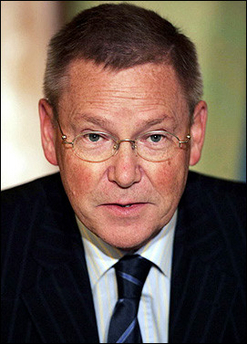 ASSOCIATED PRESS WRITER, BEIRUT, Lebanon — Police have arrested four men who allegedly sold cell phone chips to members of the plot to assassinate former Prime Minister Rafik Hariri, court officials said Thursday.Investigating magistrate Elias Eid has accused the four traders of forgery and withholding information that could have helped the investigation into Hariri’s death, a court official said on condition of anonymity because of the sensitivity of the inquiry.
ASSOCIATED PRESS WRITER, BEIRUT, Lebanon — Police have arrested four men who allegedly sold cell phone chips to members of the plot to assassinate former Prime Minister Rafik Hariri, court officials said Thursday.Investigating magistrate Elias Eid has accused the four traders of forgery and withholding information that could have helped the investigation into Hariri’s death, a court official said on condition of anonymity because of the sensitivity of the inquiry.
A second court official said the four were accused of providing cell phone lines to those who planned and carried out Hariri’s assassination. The official, who also spoke on condition of anonymity for similar reasons, said the chips for the cell phones were later destroyed in a bid to eliminate evidence. The arrests had been requested by the chief U.N. investigator into the Hariri killing, Detlev Mehlis. French and German experts assisting the U.N. investigation have studied thousands of calls made before and after the assassination.The phone dealers – Majed al-Akhras, Mustafa Misto, Ayman Tarabay and Raed Fakhereddine – were among 10 detained for questioning this week, the officials said. The four were formally arrested Wednesday and the others were released on bond.
The new arrests raise to eight the number of people currently in custody on charges related to Hariri’s murder. Last month, four pro-Syrian generals, three of whom ran Lebanon’s security services at the time Hariri was killed, were detained. The fourth is still commander of the presidential guards.
The generals have been accused of complicity in the assassination.
On Thursday, the Mehlis commission questioned Syrian officials at a resort in western Syria for a third straight day.
It was not announced who has been interrogated at a hilltop retreat near Lake Zarzar. Mehlis has said he wants to interview Syrian officials who were in charge of security in Lebanon before its troops withdrew in April.
Lebanese newspapers have said the officials include Syria’s last intelligence chief in Lebanon, Brig. Gen. Rustum Ghazale, two of Ghazale’s aides, and Interior Minister Ghazi Kenaan, who was Syria’s intelligence chief for Lebanon until 2002.
Mehlis, a German prosecutor, has not made any accusations of Syrian involvement in the assassination. The government in Damascus has repeatedly denied any role.
The commission’s presence is seen as challenge to state authority in Syria, a country where the government maintains tight control over political matters. If the investigation uncovers evidence of Syrian involvement, it could undermine the government.



